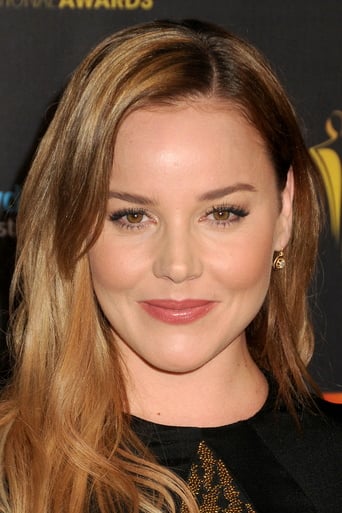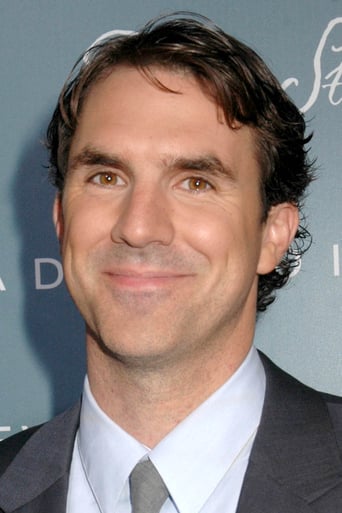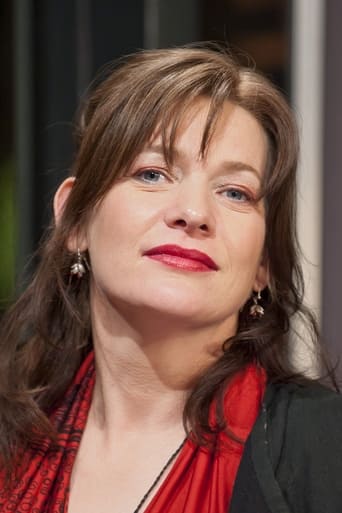NekoHomey
Purely Joyful Movie!
AnhartLinkin
This story has more twists and turns than a second-rate soap opera.
Kaydan Christian
A terrific literary drama and character piece that shows how the process of creating art can be seen differently by those doing it and those looking at it from the outside.
Fatma Suarez
The movie's neither hopeful in contrived ways, nor hopeless in different contrived ways. Somehow it manages to be wonderful
SnoopyStyle
It's 1818 in Hampstead Village on outer London. Fanny Brawne (Abbie Cornish) is introduced to John Keats (Ben Whishaw). At first, he dismisses her as a fashionista. She pursues him by reading his poems. She shows compassion to his sick brother Tom who passes away. His lack of an income keeps him from truly pursuing a romance. His friend and writing mate Charles Brown (Paul Schneider) aims to show Fanny as a cruel flirt by sending her a Valentine.In the sure hands of Jane Campion, this has both a poetic and true feel of romance. She shows restraint which only heightens the passion. The Brown valentine is a shocking turn and the height of romantic drama. In particular, Abbie Cornish delivers a compelling of a relentless love from the heart and passion from the time era.
tieman64
Jane Campion directs "Bright Star". The film is based on the last three years of the life of poet John Keats (Ben Whishaw), and charts his romantic relationship with a young woman, Fanny Brawne (Abbie Cornish).Like many of Campion's pictures ("Holy Smoke", "The Piano", "In The Cut"), "Bright Star" is both gorgeously directed and erotically charged. Campion's compositions are immaculate, her cinematography precious and the film's lighting oft recalls the faint whites of Johannes Vermeer.Typical of Campion, "Bright Star" also manages to be sexy despite the chastity of its lead characters. Where Campion's "Piano" and "Cut" charged music and words with sexual possibility, in "Bright Star" we're thrown into the world of two lovers who imbue words with an eroticism which their bodies aren't allowed. Separated by tight corsets, social barriers and tradition, Brawne and Keats ravish one another with prose and stanzas, poetry and literature becoming a form of prim foreplay.But Keats and Barwne aren't simply lovers stereotypically boxed in by the social mores of the 19th century. No, both are also a couple of strong-willed, assertive bohemians. Brawne is a fiery proto-feminist who walks at the beat of her own drum, and Keats likewise doesn't give a damn about what anybody thinks or says. This results in a film which breaks away from the conventions of most romantic films set in the 19th century. Rather than a Jane Austenesque tale in which social pressures keep lovers apart, Campion serves up a tale in which two lovers decide to remain apart as an act of both pragmatism and love; Keats refuses to marry Brawne so as not to be a financial burden and Brawne refuses to marry Keats as an act of deference, refusing to get in the way of his poetry. Keats and Brawne's romance may be doomed, but it is doomed because they mutually will it. It is doomed by choice.Campion is one of the few female directors to command a mainstream audience. Virtually all her films are underrated, "Bright Star" included. Arguably Campion's most confidently directed picture, it features an excellent performance by Abbie Cornish, whose difficult role requires a blending of fragility, inexperience, power and agency. Those looking for insights into Keats' life and poetry, however, will be disappointed. Unlike Brawne, Campion's Keats never amounts to anything more than a stereotype. He's a dainty "emo" artist, a giant caricature of a Romantic Poet, and the words which springs from his mouth and pen seems to come from a personality completely at odds with what Campion has sketched. The blunt, mannered prose of Keats is also at odds with Campion's visual beauty, which is gentle, ethereal and delicate. Still, these are minor criticisms. Campion's "Bright Star" is mostly excellent, at least insofar as it echoes the ethos of the Romantic Movement, a movement which arose in the mid 1790s and became unconsciously obsessed with a form of pantheism (seeing the divine in everything), nostalgia, naivety and reacted against Enlightenment principles (most of the famous Romantic artists eventually became giant reactionaries). Campion's Keats is similarly narrow minded, but to Brawne, these fixations make him irresistibly delectable.8/10 – Sumptuous. Worth multiple viewings.
garrettvandrews
At its core Campion's Bright Star is an attempt to represent the essence of John Keats. Not an easy task for a director, and doubly difficult for an uninformed viewer. Keats' grave stone in Rome states: "Here lies one whose name was writ in water." Keats never lived to realize his success, he died before becoming famous. Similarly, his poems are accepted as exhibiting the recurring theme of yearning for and perhaps even glimpsing transcendence and immortality but ultimately falling back to earth. Few people are aware that the one exception to this is Keats' masterpiece of a Shakespearean sonnet, "When I Have Fears." A close reading reveals that unlike any other of Keats' works, he not only yearns for but actually reaches and achieves his goal in the heroic couplet. He transcends his mortal body and lives forever.This is why Campion selected "When I Have Fears" within her movie. This is also why, at the movie's climactic end when John Keats and Fanny Brawne must part company, there is nothing physical about that parting: no embrace or kiss, not even a look back. It is an attempt to demonstrate the immortal love Keats achieved - once -.
cinemaniac2002
I had the pleasure of attending a screening of Bright Star with Director Jane Campion and rascal Mr. Brown (Paul Schneider) - who, by the way, is even more handsome in person. I thoroughly enjoyed this quiet, elegant and romantic film. It is the embodiment of romance in every way possible. This story really seems to capture the essence of John Keats and the tragic love affair that was cut short with his only true love - Fanny Brawne (played brilliantly by Abbie Cornish). It is heartbreaking to watch how this relationship progresses, from the hostility and jealousy of his friend, Charles Brown to the physical frailty that Keats endured. It is a Romeo and Juliet scenario in the sense that their inability to be together was based upon the moral code of the as yet to become Victorian era.The film provides great insight into the astounding beauty of Keats' poetry that is emotionally moving well beyond his years. Fanny's steadfast and pure devotion is doomed, but she never wavers. Like him, she has the soul of an artist and her chosen outlet is clothing design. There has been speculation as to whether Brown had sexual feelings for Keats. Reading between the lines it appears as though that may have been the case. Every so gently, Campion touches upon this first through Brown's seemingly unfounded jealousy of Fanny. During one scene, Brown maintains that he has failed Keats and goes on to say that he was never aware of how much Keats had wrapped himself around his heart. However, Campion is adept at subtlety, perhaps unlike any other filmmaker. The gentleness with which she tells this story does not provide any obvious explanation for a man to be so vehemently opposed to a friend's love for a woman. It is also easy to be entranced by the romance in this film and get swept into the love between Fanny and Keats so as not to see the subplot clearly. Brown's love for Keats is an interesting aspect of the story - but there is no direct and actual evidence of a triangle. But if you watch closely, it may become more obvious than could be realized.





